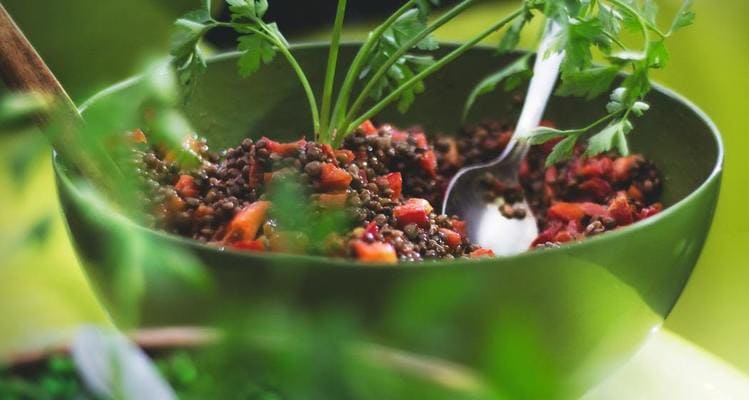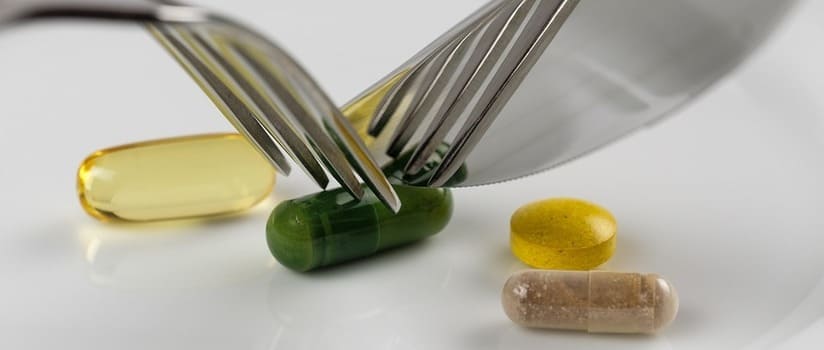Iron is a lustrous, ductile, malleable, silver-gray metal (group VIII of the periodic table). It is known to exist in four distinct crystalline forms. Iron rusts in damp air, but not in dry air. It dissolves readily in dilute acids. Iron is chemically active and forms two major series of chemical compounds, the bivalent iron (II), or ferrous, compounds and the trivalent iron (III), or ferric, compounds.
Iron is believed to be the tenth most abundant element in the universe. Iron is also the most abundant (by mass, 34.6%) element making up the Earth; the concentration of iron in the various layers of the Earth ranges from high at the inner core to about 5% in the outer crust. Most of this iron is found in various iron oxides, such as the minerals hematite, magnetite, and taconite. The earth’s core is believed to consist largely of a metallic iron-nickel alloy.
Iron is essential to almost living things, from micro-organisms to humans.
Fast facts on iron
- The Recommended Daily Allowance (RDA) varies between ages, but women who are pregnant require the most.
- Iron promotes healthy pregnancy, increased energy, and better athletic performance. Iron deficiency is most common in female athletes.
- Canned clams, fortified cereals, and white beans are the best sources of dietary iron.
- Too much iron can increase the risk of liver cancer and diabetes.
Anemia and its causes
Anemia describes the condition in which the number of RBCs in the blood is low, or the blood cells have less than the normal amount of hemoglobin. A person who has anemia is called anemic. The purpose of the RBC is to deliver oxygen from the lungs to other parts of the body. The hemoglobin molecule is the functional unit of the RBCs and is a complex protein structure that is inside the RBCs. Even though the RBCs are made within the bone marrow, many other factors are involved in their production. For example, iron is a very important component of the hemoglobin molecule; erythropoietin, a molecule secreted by the kidneys, promotes the formation of RBCs in the bone marrow.
Having the correct number of RBCs and prevention of anemia requires cooperation among the kidneys, the bone marrow, and nutrients within the body. If the kidneys or bone marrow are not functioning, or the body is poorly nourished, then normal RBC count and functions may be difficult to maintain.
Anemia is actually a sign of a disease process rather than a disease itself. It is usually classified as either chronic or acute. Chronic anemia occurs over a long period of time. Acute anemia occurs quickly. Determining whether anemia has been present for a long time or whether it is something new, assists doctors in finding the cause. This also Helps predict how severe the symptoms of anemia may be. In chronic anemia, symptoms typically begin slowly and progress gradually; whereas in acute anemia symptoms can be abrupt and more distressing.

Some foods rich in iron
Meat and Poultry
- Lean beef
- Veal
- Pork
- Lamb
- Chicken
- Turkey
- Liver (except fish liver)
Seafood
- Fish
- Mussels
- Shellfish
Vegetables
- Greens, all kinds
- Tofu
- Broccoli
- Sweet Peas
- Brussel Sprouts
- Kale
- Bean Sprouts
- Tomatoes
- Lima Beans
- Potatoes
- Green Beans
- Corn
- Beets
- Cabbage
Iron deficiency symptoms
Although not suffering this disease, an iron deficiency can be manifested through a range of bodily signs such as:
- Body weakness
- Pale skin
- Fast heartbeat
- Habitual fatigue
- Difficulty in the breathing
- Tingling in the tips of the fingers or toes, cold feeling above normal
Is excess of iron bad for our body? Excess iron is harmful to health. Administered by supplements in high doses it constitutes a very powerful poison.
The excessive accumulation of iron in the body is a metabolic disorder known as hemochromatosis, which can cause serious diseases to liver (liver cancer or cirrhosis) or to the heart and it is responsible for cases of arthritis or diabetes.
Healthy pregnancy
Blood volume and red blood cell production increase dramatically during pregnancy to supply the growing fetus with oxygen and nutrients. As a result, the demand for iron also increases. While the body typically maximizes iron absorption during pregnancy, insufficient iron intake or other factors affecting the way iron is absorbed can lead to iron deficiency.
Low iron intake during pregnancy increases the risk of premature birth and low birth weight, as well as low iron stores and impaired cognitive or behavioral development in infants. Pregnant women with low iron may be more prone to infection because iron also supports the immune system.
It is clear that iron supplements are needed for women who are both pregnant and iron-deficient. However, research is ongoing as to the possibility of recommending additional iron to all pregnant women, even those with normal iron levels. It is argued that all pregnant women should take 30 to 60 milligrams (mg) of iron supplements on every day of their pregnancy, regardless of their iron levels.
Benefits
- Fights Hair Loss
A European Journal of Dermatology study found that women can experience excessive hair loss due to iron deficiency. The study reported that low iron stores increase the rate of hair fall, especially in non-menopausal women. Iron also helps improve hair texture and reduces dullness by increasing the flow of oxygen and nutrients to the hair roots and scalp. - Makes You Energetic
Iron acts as a carrier of oxygen in the body and transfers it to the muscles and the brain, thereby increasing both physical performance and mental alertness. Low levels of iron within the body can make you inattentive, irritable, and fatigued. As per a study conducted by the University of Melbourne, iron supplementation Helps improve exercise performance in women. - Gives Your Skin A Healthy Glow
Pale skin and dark circles are the most common signs of anemia caused due to iron deficiency. The lack of iron causes hemoglobin levels to decrease, resulting in the subsequent reduction of RBCs. The reduced oxygen flow can deprive your skin of its color, making it look sallow. A healthy dose of iron-rich foods in your daily diet can Give your skin a pinkish glow. - Alleviates Restless Leg Syndrome
Restless leg syndrome (RLS), a neurologic movement disorder, creates an urge to move the legs repeatedly. These sensations get further intensified at rest, and therefore, cause disturbed sleep. A study conducted by Age and Aging found that the deficiency of iron (with or without anemia) can trigger RLS in the elderly. Taking iron supplements can, thus, alleviate its symptoms.
A registered medical dietitian. She has been dealing with dietetics for many years and expanding her knowledge through participation in dietetics-related conferences and training as well as reading scientific press. She helps children and adults to overcome their dietary difficulties, such as overweight and underweight, and get rid of bad eating habits. She also lectures on dietetics and proper supplementation. Thanks to the work in one of the largest dietetics companies in England, she learned the importance of suitable motivation and support in the process of changing eating habits. She gets much satisfaction when she can encourage people to lead healthy lifestyle. She knows well that everyone has own specific needs, and therefore she diagnoses all her patients on a case-by-case basis.


